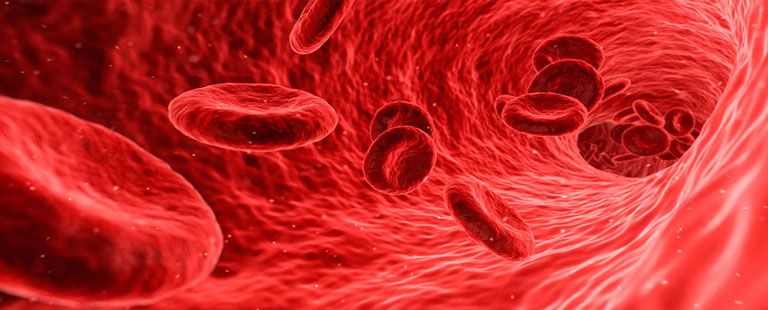List of Conditions for Social Security Disability
Social Security provides benefits to people with disabilities. It has a list of conditions that qualify for Social Security that are analyzed frequently. Likewise, each person is evaluated individually to determine if their illness and case is the reason for a disability. However, there are a series of requirements that Social Security takes into account to make this evaluation.
This process can be a bit cumbersome to do on your own. That is why we recommend seeking the help of attorneys with experience in the matter to discuss the different categories of disability. If you are interested in this topic, we invite you to read this article where we mention the list of conditions for Social Security disability.
What evidence does Social Security need for the evaluation of disabling illnesses?
Medical evidence is very important to know if an illness is a reason for disability or not. This must be recent and include the period of time from when the symptoms begin to the moment of the request.
These are some of the factors that Social Security specifies as medical evidence:
General
Social Security needs objective medical evidence to clarify whether you have a disorder or condition that requires disability. Your medical records will be key in the process.
Laboratory reports
The reports can be physical or mental, depending on the type of pathology. A laboratory report will also be necessary as a definitive sample of certain diseases.
Diagnostic tests
In some cases, providing medical images such as X-rays and CT scans will be mandatory. Laboratory tests, such as blood tests or other diagnostic methods, may also be requested, depending on the case.
Surgical reports
There are diseases that involve one or more surgical procedures, for which Social Security may request a surgical report.
Effects of treatment
During the evaluation, Social Security will want to know the treatment notes to determine if the treatment causes bothersome symptoms or has produced improved results. Treatments can be surgical, provided by medications, or therapies.
Does your condition appear on the Social Security Disability List of Impairments?
If you are wondering which illnesses qualify for benefits, the Social Security list of impairments will be very helpful in determining if you can receive disability benefits. Indeed, each of the conditions listed requires medical documentation to be considered by Social Security. This citizen protection system will proceed to evaluate the reports and necessary documentation in order to know if your claim meets the conditions subject to Social Security disability.
Below, we will present a list of the disabling conditions recognized by Social Security and that you can discuss with the lawyer handling your case:

Cancer (malignant neoplastic diseases)
Once Social Security evaluates cancer as a disability, it takes into +account its origin and the degree of participation. They also consider other factors such as duration and your response to therapy. Likewise, they will evaluate the effects produced by any post-therapeutic residue.
These are some of the types of cancer that may qualify for disability benefits:
- Brain cancer
- Pancreatic cancer
- Prostate cancer
- Lung cancer
- Breast cancer
- Thyroid cancer
- Testicular cancer
- Trabecular cancer
- Myelofibrosis
- Leukemia
- Chronic lymphocytic leukemia
- Lymphedema
- Lymphoma
- Benign brain tumors

Cardiovascular system
Symptoms, signs and laboratory findings are considered for the evaluation of cardiovascular disorders. In addition, the response to prescribed treatment regimens and functional limitations are taken into account.
These are some of the disabling diseases, related to cardiovascular deterioration:
- High blood pressure (hypertension)
- Aortic aneurysm
- Arrhythmias
- Sinus bradycardia
- Blood clots
- Chest pain
- Congenital heart disease
- Chronic heart failure
- Arterial fibrillation
- Heart failure
- Chronic vein insufficiency
- Mitral valve prolapse
- Syncope or fainting
- Marfan syndrome
- Heart transplant

Digestive system
In order for a person to become disabled due to serious problems in the digestive system, they must meet some Social Security requirements. To be considered, medical evidence is necessary, such as clinical and laboratory findings. Medically acceptable imaging studies must appear in the documentation. Also, reports of operations, endoscopy and other studies to determine any disease related to the digestive system.
These are some diseases that can prove a person's disability for Social Security, under the digestive system category:
- Ulcerative colitis
- Cirrhosis
- Primary biliary cirrhosis
- Colitis
- Stomach pains
- Crohn's disease
- Gastroesophageal reflux disease (GERD)
- Wilson's disease
- Inflammatory bowel disease
- Gastroparesis
- Glycogenosis
- Gastrointestinal hemorrhages
- Hepatitis
- Obstruction of the esophagus
- Liver problems
- Small intestine syndrome
- Ulcers

Special senses and speech
Problems related to the organs of sense and speech require different recognition tests. Therefore, Social Security considerations must be taken into account when evaluating each of these conditions or disorders.
There are several visual and auditory medical conditions that qualify to be able to apply for disability:
- Macular degeneration
- Meniere's disease
- Acoustic neuroma
- Loss of vision
- Loss of speech
- Retinitis pigmentosa
- Deafness or hearing loss

Immune system
Social Security evaluates immune system disorders that cause dysfunction in one or more of its components. These conditions can cause deficits in one or more organs. It will depend on whether there are limitations of a lesser or greater degree in the organs or body system.
These are some of the work-incapacitating diseases, as a consequence of some immunological condition:
- Inflammatory arthritis
- Mixed and Undefined Connective Tissue Disease
- Multiple Sclerosis
- Lupus
- Polymyositis
- AIDS
- Chronic fatigue syndrome
- Guillain Barre Syndrome
- Sjorgen syndrome
- Systemic vasculitis
- Human Immunodeficiency Virus (HIV)
- Epstein-Barr virus

Musculoskeletal system
The disorders evaluated in this category have to do with the spine and upper extremities. Soft tissue injuries and other conditions that may affect musculoskeletal function are also evaluated.
These are some of the main disabling conditions:
- Amputation
- Spinal arachnoiditis
- Rheumatoid arthritis
- Bursitis
- ACL tear
- Dysautonomia
- Herniated discs
- Muscular dystrophy
- Reflex sympathetic dystrophy
- Neck pain
- Back pain
- Joint pain
- Lyme disease
- Degenerative disc disease
- Scoliosis
- Ankylosing sponditis
- Lumbar stenosis
- Fibromyalgia
- Fibromuscular dysplasia
- Fractured disc
- Bone fractures
- Fracture of an upper extremity
- Drop
- Herniated disc
- Whiplash
- Spinal cord injury
- Avascular necrosis
- Osteoarthritis
- Paralysis
- Clubfoot
- Knee replacement
- Carpal tunnel syndrome
- Piriformis syndrome

Congenital disorders
There are a large number of congenital conditions or disorders that can affect a person, leading to their inability to work. This disability can be both physical and mental. That is why Social Security carries out the corresponding evaluation to find out if you can request a disability due to a congenital disorder.
These are some of the conditions that may qualify:
- Dermatomyositis
- Dwarfism
- Phenylketonuria (PKU)
- Chronic insomnia
- Fetal alcohol syndrome
- Down syndrome
- Caucade deterioration syndrome
- Trisomy X syndrome (XXX syndrome)
- Fragile X syndrome
- Hereditary hemorrhagic telangiectasia

Endocrine disorders
To determine that you have an endocrine disorder, Social Security needs some evidence. Some of these may be lab test results or a lab report verifying your condition and signed by a doctor.
You can apply for disability if you suffer from any of the following diseases in this category:
- Acidosis
- Diabetes
- Graves' disease
- Hyperglycemia
- Hyperparathyroidism
- Hypoglycemia
- Inflammation of the retina
- Neuropathy
- Obesity
- Pancreatitis
- Pituitary gland disorders
- Thyroid gland disorders
- Adrenal gland disorders

Genitourinary disorders
Genitourinary disorders are caused by chronic kidney disease. For its evaluation, it is necessary to have on hand clinical examinations, treatment records and documents that demonstrate the treatment response. Laboratory tests will also be important in documenting your kidney function.
These are some of the genitourinary disorders that fall into the list of disability conditions:
- Interstitial cystitis
- Chronic glomerulonephritis
- Kidney failure
- Diabetic nephropathy
- Hypertensive nephropathy
- Nephrotic syndrome
- Chronic obstructive uropathy

Hematological disorders
The Social Security list evaluates non-malignant hematological disorders, thrombosis disorders, and anemia, among others. This requires a laboratory or medical report, which provides a diagnosis confirmed by prior laboratory analysis. Likewise, there are other diagnostic methods that can be used.
Among the category of hematological disorders, we can mention the following:
- Sickle cell anemia
- Hemolytic anemias
- Coagulation defects and hemophilia
- Cellular disease
- Chronic liver disease
- Granulocytopenia
- Hemochromatosis
- Bone marrow failure
- Lymphoma
- Leukemia
- Macroglobulinemia
- Multiple myeloma
- Polycythemia Vera
- Budd-Chiari syndrome
- Liver transplant
- Thrombosis and hemostasis

Mental disorders
The list of mental disorders is organized into fourteen categories. Each of them is evaluated by acceptable medical evidence. It is the only way to know if you have a mental disorder or not. However, medical evidence must include your symptoms, medical history, results of physical or mental examinations, and other tests that will give a definitive diagnosis.
On the list of conditions that qualify for Social Security for mental disorders, are the following:
- Autism
- Drug addiction
- Panic attacks
- Depression
- Affective disorders
- Personality disorders
- Dysthymia
- Schizophrenia
- Memory loss
- Asperger syndrome
- Bipolar disorder
- Anxiety disorder
- Attention deficit hyperactivity disorder
- Post-traumatic stress disorder
- Eating disorders
- Mood disorders
- Somatoform disorders
- Obsessive compulsive disorders

Neurological disorders
Different disorders are evaluated in the Social Security neurological lists. These can manifest themselves through severe limitations in functioning, both physical and mental. For its documentation, medical evidence accompanied by medical images such as CT scans or X-rays is needed.
Let's look at some of the neurological disorders that cause disability for Social Security:
- Pseudobulbar affect
- Stroke (Cerebrovascular Accident)
- Dystonia
- Multiple sclerosis
- Epilepsy
- Hydrocephalus
- Traumatic Brain Injury
- Chronic migraines
- Narcolepsy
- Neuralgia
- Cerebral palsy
- Anterior poliomyelitis
- Charcot-Marie-Tooth syndrome
- Parkinson syndrome
- Tourette syndrome
- Cubital tunnel syndrome
- Seizure disorder
- Brain trauma
- Brain tumor

Skin disorders
Skin disorders can be congenital, acquired or a consequence of pathological processes. To evaluate the existence or severity of your subcutaneous condition, Social Security requires information related to the onset and entire process of the disease.
Here are some disabling conditions for Social Security under the skin disorders category:
- Cellulite
- Dermatitis
- Bullous diseases
- Chronic skin diseases
- Hidradenitis suppurativa
- Ichthyosis
- Chronic infections
- Severe burns
- Psoriasis
- Severe skin disorder
- Genetic photosensitivity disorders

Respiratory disorders
Respiratory illnesses have many symptoms that must be evaluated to determine their severity. These are usually DLCO tests, ABG tests, or computerized medical imaging and x-rays.
Listed in the respiratory disorder category, we can mention the following:
- Sleep apnea
- Severe chronic asthma
- Pulmonary bronchiectasis
- Chronic obstructive pulmonary disease (COPD)
- Emphysema
- Cystic fibrosis
- Pulmonary hypertension
- Chronic and persistent lung infections
- Mycobacterial and fungal infections
- Lung failure
- Pneumoconiosis
- Sarcoidosis
- Lung transplant
- Sleep-related breathing disorders
- Pulmonary Tuberculosis
What happens if your illness is not listed?
This is the list of impairments that qualify for Social Security disability. However, if you have an illness that has not been mentioned, it can be evaluated.
If you have noticed that your condition is not listed, it does not mean that you do not qualify for disability benefits. The most important thing is that you have a medical record that shows that you are unable to work normally. The truth is that all cases must go through a judge to make the final decision. Some illnesses not mentioned may qualify. While some listed are not approved as disabling due to their degree of severity.
Social Security requires valid documentation and medical evidence before deciding if you can receive disability benefits. Therefore, you need to be well oriented regarding the process and requirements.
The help of our lawyers is essential to apply for Social Security disability
Many people receive a denied case response because their documentation is incomplete, but this should not worry you. Although this process is difficult, our attorneys are experienced in the process of applying for Social Security for disabling conditions. With a Social Security attorney to help you through the application process, you will have a better chance of receiving your benefits. Our consultation is free and confidential. We do not charge anything until your application is approved. No matter where you are in Puerto Rico, the USA or the USVI, we can make a consultation right now to help you.

